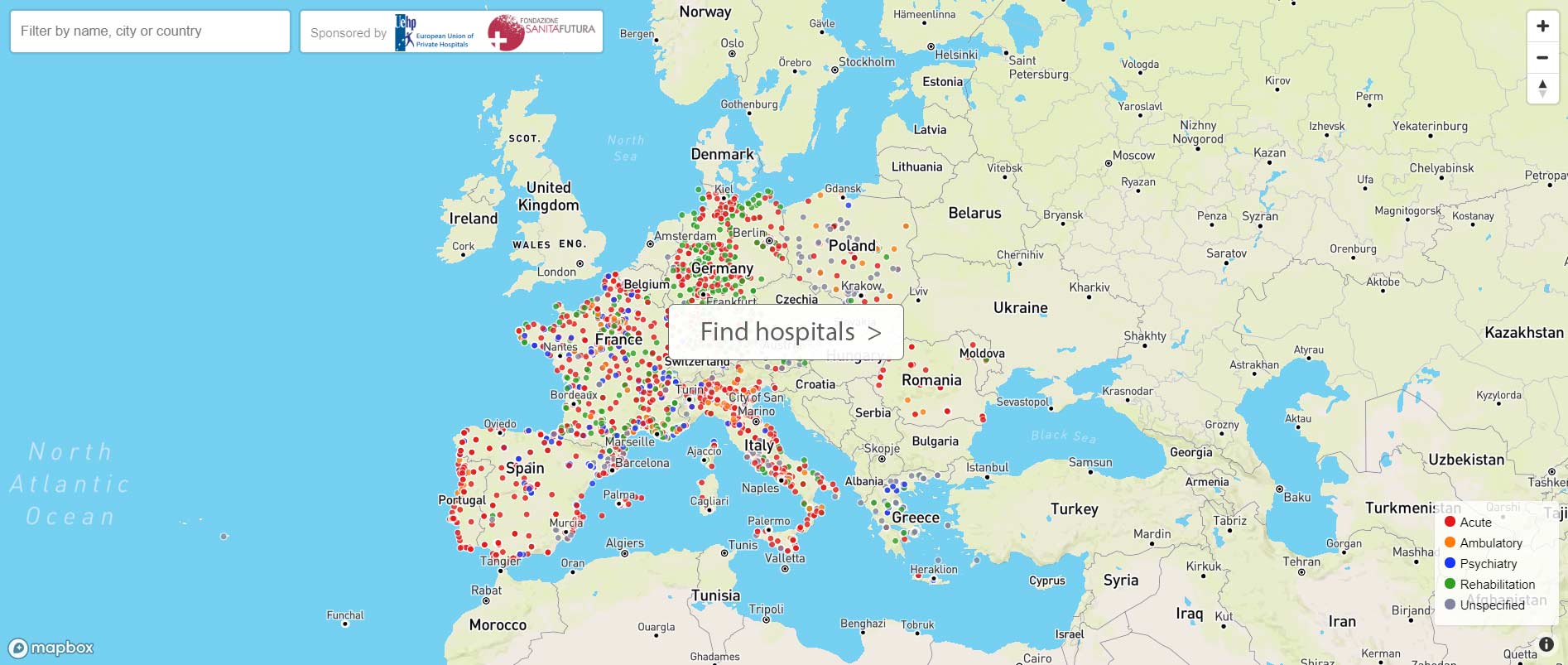FEBRUARY 2021 – Interview to Prof. Dr. Christoph Herborn, Chief Medical Officer (CMO) of Asklepios and responsible for international relations
How does a large private hospital group like Asklepios react to the pandemic and what measures have been taken to ensure health care?
The pandemic in March and April 2020 surprised us in every respect, especially in its severity and duration. Accordingly, we were initially unprepared and the first few weeks were very stressful for us, not so much in terms of the mass influx of patients, it was more in the provision of personal protective equipment for our employees. We also had to protect other patients from the spread of the virus. We developed different procedures to reprocess protective equipment, for example. The colleagues from the purchasing department found many new ways and possibilities to replenish our stock and inventory of respirators, disinfectants, surgical gowns, etc. and to protect ourselves against possible infections.
It was a very big challenge, but we mastered it well.
The number of patients normally cared for in hospitals has dropped sharply during the pandemic period. How do you experience this situation as Medical Director of the entire Asklepios Group?
On the one hand, the fact that many patients have reconsidered seeking medical services at all because of the pandemic is worrying. Both emergency cases and elective treatments have dropped sharply during this period.
We were able to overcome the impact of the second wave and the significantly higher number of patients we had to treat in our hospitals in November and December by introducing the second and noticeable lockdown, which we have now had in Germany since December. That has at least meant that our hospitals would not be impacted exclusively by the Corona business.
We have a number of Covid patients in our Group, around 400 patients at present, who are being treated as inpatients. Of those, 20% require intensive monitoring, including many elderly people. We notice that the utilization of inpatient services has decreased significantly compared to the times before. After the first wave, we had a high number of patients with different diseases, but a big rush did not happen as expected. This means that the services that were missing could not be compensated.
What does that mean from an economic point of view?
We have been supported by politics. Some hospitals in Germany have been given a financial injection in the form of a “free stay” flat rate. It has been paid for patients who did not come to the hospitals in the 2019 and 2020 annual comparison, so that in fact, although the number of patients cared for was significantly lower, at least partial compensation for the loss of revenue was ensured. However, that was nowhere near adequate.
What about testing and the vaccination campaign?
Asklepios has its own laboratory in Hamburg where we can do PCR testing. At Asklepios, we have started to sequence patients who have evidence of covid-19 disease in PCR diagnostics separately as well. We work with external laboratories such as the University Hospital in Hamburg or the Charité in Berlin.
With regard to the vaccination campaign, the hospitals in Germany have been urged to vaccinate their own employees themselves. However, there will also be cases where we vaccinate our patients who have been with us for a long time, e.g. in geriatrics or psychiatry. However, it is not planned at the moment.
Since mid-December, delivery robots have been rolling through the Hamburg district on behalf of the Asklepios major laboratory Medilys. To what extent does such a pandemic also represent an opportunity to change practices?
With the Starship robot, we have indeed broken new ground in diagnosing patients – a test kit is sent home and collected by robot. During the pandemic, we have definitely seen that there is an interest in participating in video consultations, but also in teleconsultation or the general use of digital solutions. Digitization has definitely experienced a boost at Asklepios, an uptake that we didn’t have before. In general, the willingness to engage with such processes is significantly higher than it was before the pandemic.
Will private hospitals in Germany emerge stronger from this pandemic?
Private clinics have been able to show that they are reliable partners in healthcare and are prepared to provide relevant intensive care capacity quickly and unbureaucratically, protecting and providing good care not only for patients but also for employees. Accordingly, I believe that the reputation of private hospitals as a whole is benefiting from the crisis and that our hospitals are perceived as elementary building blocks in the provision of healthcare in Germany.
However, the reputation of private hospital operators in Germany has unfortunately not always been very good. Here, too, we will have to wait and see whether we will see a noticeable change.


